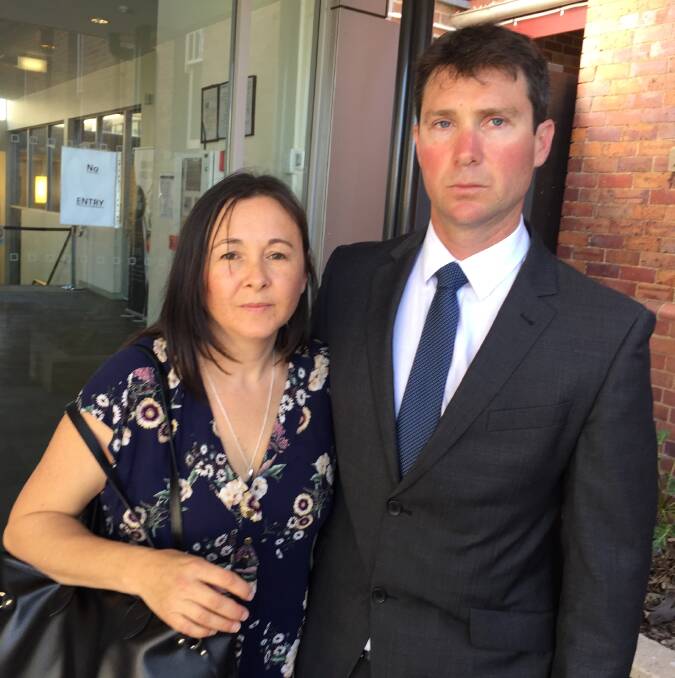The death of a Nowra toddler from sepsis less than 24 hours after being discharged from a South Coast hospital probably could have been prevented, a coronial inquest has heard.
Subscribe now for unlimited access.
$0/
(min cost $0)
or signup to continue reading
Seventeen-month-old Troy Almond had a temperature and was lethargic and vomitting when his worried mother, Kim Macklin, brought him into Shoalhaven District Hospital emergency department just after 10am on March 21, 2016.
Registered nurse Pamela Mason triaged the boy and documented his symptoms, which included an elevated heart rate and a high temperature. She said he vomited and cried during the assessment, and she noticed his limbs were shaking, he was warm to the touch and his skin was pale.
He was then given paracetamol and taken to the pediatric section of the ED, where he was seen by registered nurse Shaun Avis. Despite being given additional doses of Panadol and Nurofen, Troy's heart rate and temperature remained high.
Mr Avis said he gave the boy fluids, which he managed to keep down.
The inquest heard nurses prepared Troy for blood samples to be taken, however they never were.
Counsel assisting the Coroner, Lesley Whalan, said by 1.30pm he showed signs of improvement, with his temperature dropping to 37 degrees, however his heart rate remained elevated.
By 2.30pm, Troy's temperature was back to normal however his heart rate was still increased.
Read more:
ED doctor Babak Tajvidi had a consultation with the family, after which Troy was discharged, with Dr Tajvidi suggesting the toddler may be suffering from a viral infection.
However, the inquest heard Troy's condition deteriorated overnight and he woke the following day with diarrhoea and had begun vomiting again.

Ms Whalan said Troy became "unresponsive" later that morning, prompting his parents to phone triple zero.
They performed CPR until paramedics arrived and transported Troy to hospital, where he was pronounced dead at 12.50pm.
Ms Whalan said an autopsy revealed Troy had died from sepsis.
“It was a bacteria known as Streptococcus, a serious infection that affects the mucus of the nose and throat and has the ability to invade the rest of the body,” she said.
“Some can become invasive, and can become sepsis....and this was the case with Troy.”
She said the recommended treatment for sepsis was antibiotics, but recovery also depended on early detection.
“But Troy did not receive antibiotic treatment. This was a sad death that probably could have been prevented,” she said.
“The questions are over the management of Troy’s death.”
Both Ms Mason and Mr Avis gave evidence that NSW Health's Between the Flag procedures - designed to raise red flags where potential symptoms of sepsis were detected - were not used in the ED.
The charts only came into use once a patient was admitted to a ward in the hospital.
Ms Macklin and her partner, Daniel Almond, were supported in court by their extended family.
The pair broke down in tears as evidence of their son’s last few days were read out.
The inquest will continue on Tuesday in Nowra before moving to the Glebe Coroner’s Court on Thursday and Friday.


